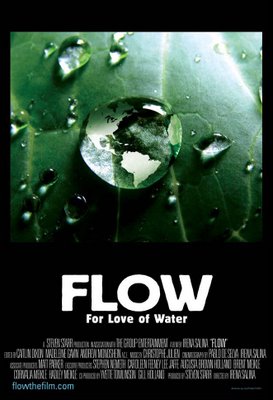Film director Irena Salina’s documentary entitled Flow: For the Love of Water has been described as water’s version of Al Gore’s Inconvenient Truth. The film strives to put a human face on the global water crisis.
“One of the things that became immediately apparent to me was that water is a truly unifying element. We all need it, we all want it and more than anything else in the world it is the one thing that connects us all – Irena Salina.
If you live in or near the Vancouver, Canada area and would like to check out the documentary, it will begin showing on December 12th, 2008 at the Vancity Theatre. Go see it right away because it’s only in Vancouver for a week!
Vancity Theatre
1181 Seymour St., Vancouver
tel. (604) 683-3456
In the meantime, you can check out the website here for more information and background on the people who made the documentary and how it was made.
Irena Salina’s award-winning documentary investigation into what experts label the most important political and environmental issue of the 21st Century – The World Water Crisis. Salina builds a case against the growing privatization of the world’s dwindling fresh water supply with an unflinching focus on politics, pollution, human rights, and the emergence of a domineering world water cartel. Interviews with scientists and activists intelligently reveal the rapidly building crisis, at both the global and human scale, and the film introduces many of the governmental and corporate culprits behind the water grab, while begging the question “CAN ANYONE REALLY OWN WATER?” Beyond identifying the problem, FLOW also gives viewers a look at the people and institutions providing practical solutions to the water crisis and those developing new technologies, which are fast becoming blueprints for a successful global and economic turnaround.
















Recent Comments